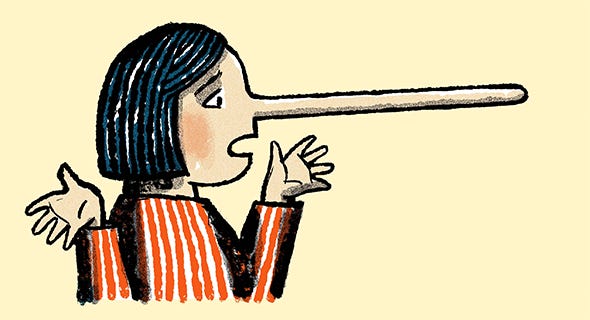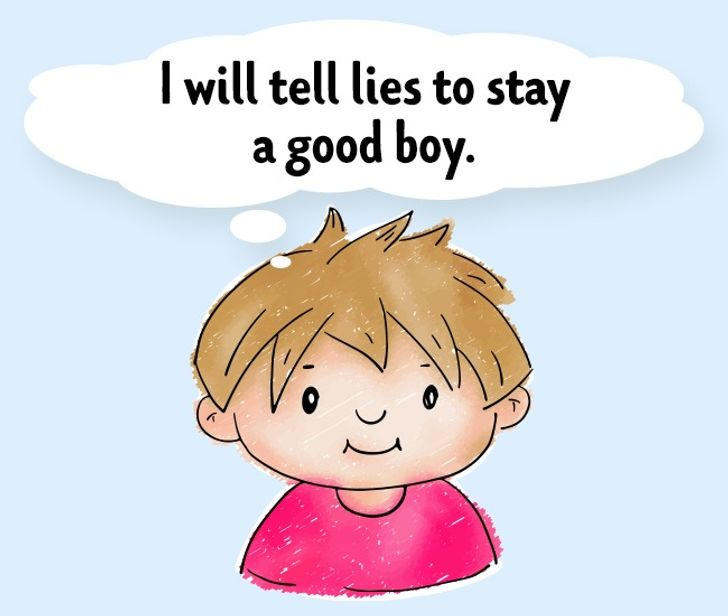“Honesty is the best policy”- Benjamin Franklin
At some point in our lives, we have heard or seen this proverb written on the blackboard or as a moral of the story. So why is it that it takes so much effort to say the truth at all times? Does lying have a positive side?

Yes, there is a good side to lying too.
Lying takes planning and creativity. It requires social skills to understand what the person is likely to believe. The child must have probably observed you enough to come up with a lie.
So, lying is not a cause for concern?
Lying amongst children is rarely a cause for concern. However, with an increase in age the reasons for lying change. That is when we need to understand if children are lying out of curiosity or shame and guilt.
Okay, why do children lie?
Curiosity- Sometimes children lie because they are curious about this new discovery. They experiment and think about How will you react? What will they get from this?
Self esteem- They may lie to get appreciation or approval. For example, lying about test marks or getting a prize.
Shame- As children grow older, they may try to hide aspects of their lives to avoid judgment and shame.
Fear- Sometimes children lie if they forgot to do something want to avoid being yelled at or punished.

So, how do I promote honesty?
Be open about yourself- Take turns talking about a white lie you’ve said as a child. Think about what impact did it have on you and others? Talk about what could you have done instead? This helps build trust.

Non- judgemental listening- If a child is opening up to you, try to understand how they are feeling. Don’t get angry and call them out if you disagree with their actions. (Read: The Art of Listening to Children)
Respond don’t react- Remember if the child is owning up to a mistake avoid reacting immediately .Responding with yelling, blaming, or shaming will only encourage your child to choose deceitfulness. Instead, listen to them in a calm manner and understand why they lied in the first place.

Don’t promote it- If you know that a child has not done something, don’t ask them if they have done it in the first place. For example: if Eva did not clean her cupboard, instead of asking “Have you cleaned your cupboard” try saying, “I see you haven’t cleaned your cupboard, things are disorganized and you won’t be able to find what you want.” Quit the power play and talk about the solution instead.

Model it out- How many time have we told a child to tell someone on the phone that we are not at home? Be conscious about your own lies. Are you lying to shield the child or are you lying to shield yourselves? Remember to set a good example.
Rewards- If you know a child is telling a lie or hiding something, don’t accuse them instead talk about how you feel. For example: If a child has hidden cellotape, which you really need. Try saying “I can’t find the cellotape, I won’t be able to finish my work, I am going to be in trouble.” A few moments later you will find the cellotape near you. Turn to the child and tell them “Thank you for being truthful and giving me the cellotape.” Remember, what maybe 5 minutes to you seems like an hour to children. What may be a small thank you to you, means the world to them.

Seek professional help- If you still feel that in spite of doing everything the lying keeps increasing. Consider taking your child to a behavioral specialist. Remember, that if you can go to the doctor for a physical discomfort there is no shame in going to one for a mental discomfort too.
Remember, praising truth-telling instead of just punishing dishonesty goes a long way in creating a safe space for children. Doing this helps your child build character traits that will serve them throughout adulthood.



